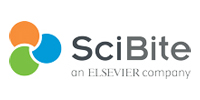FAIR Webinar
Sponsored by:


Biopharmaceutical industry R&D continues the shift from being application-centric to being data-centric in recognition of the idea that, while technologies and applications may come and go, it is the data assets from internal and external sources that really drive drug discovery and development. Therefore, it is critically important for organizations to manage data and metadata effectively so that they may be used and reused to provide maximum value, and those organizations that do this best will have a significant and enduring advantage over their competitors.
The ultimate goal of the FAIR Data Principles is to help researchers increase the reusability of data. In particular, increasing the interoperability of data using the formal, standardized methods suggested by FAIR lays the foundation for establishing a shared understanding of the meaning of the data. Ontologies are key to good interoperability, which enables data and metadata integration and allows researchers to leverage more of what is known in their scientific domains to make higher quality decisions faster. Knowledge graphs, increasingly relied upon by researchers to help them understand the complex relationships between biomedical entities, are impossible to implement without ontologies.
Ontologies can be challenging to manage and deploy, but those activities are much more successful when started with data and metadata that are FAIR. The use of the FAIR Principles, conversely, can help make better ontologies. One major challenge today, however, is the limited availability of expertise in knowledge engineering and the FAIR Data Principles across biopharmaceutical industry R&D, which can hinder efforts to build and leverage knowledge graphs and other ways of making the best use and reuse of data. We have assembled a panel of experts to help you navigate this space, to help you understand why it’s valuable to leverage the interplay of ontologies and FAIR, and what a difference it can make in R&D decision making.
Speakers
Moderator: Ted Slater, Senior Director, Product Management PaaS, Elsevier
Panel Participants:
- Jane Lomax, Head of Ontologies, SciBite
- Peter McQuilton, Product Owner, GSK
- Nathalie Conte, Data infrastructure Lead (Omic Data), AstraZeneca
- Sabine Schefzick, Director, Science and Clinical Analytics and Informatics, Pfizer
Speaker Bios

|
Ted Slater, Senior Director, Product Management PaaS, Elsevier Ted leads the data FAIRification efforts at Elsevier Life Sciences Solutions as Senior Director. He is an author of the original FAIR Data Principles paper and contributes to the Pistoia Alliance FAIR Implementation Project. He has more than 30 years of experience in the application of knowledge engineering technologies and techniques to pharmaceutical and agricultural R&D. Ted has published papers on diverse topics including systems biology, neurobiology, supercomputer-based sequence similarity detection, biomedical pathway modeling, and AI-based reasoning and machining, and holds a patent for knowledge assembly in life sciences. He is also co-inventor of the BEL language for computable representation of scientific findings. He holds an M.A. in Molecular Biology from the University of California at Riverside and an M.S. in Computer Science from New Mexico State University. |

|
Jane Lomax, Head of Ontologies, SciBite Jane leads the development of SciBite’s vocabularies and ontology services. She has a PhD in Genetics from Cambridge University and 15 years’ experience working with biomedical ontologies, including at the EBI and Sanger Institute, where she focused on bioinformatics and developing biomedical ontologies. She has published over 35 scientific papers, mainly in the area of ontology development, and contributed to public ontology projects including Pistoia Ontology Mapping Project and is on the Executive Committee for the International Society of Biocuration. |

|
Peter McQuilton, Product Owner, GSK Peter works in data quality and governance, focusing on ontology management, information architecture and FAIR metadata. He holds a PhD in Genetics and NeuroDevelopment from the University of Cambridge and has published over 30 scientific papers. After 20 years in academia, working on data and metadata curation, data management, and latterly as project lead for the FAIRsharing resource, Peter is now responsible for the Ontology Management Platform at GSK and enjoys thinking about how one can store, reconcile, maintain and serve semantically rich information on an enterprise scale. |

|
Nathalie Conte, Data infrastructure Lead (Omic Data), AstraZeneca Nathalie Conte has 20 years’ experience in both laboratory-based and bioinformatic cancer genetics fields. Her experience encompasses cancer research, genomics, data integration, medical ontologies, and agile application development. As a result, she has cultivated expertise in different fields of research, from the basic sciences studying cancer biology to the application of bioinformatics and big data integration. This has given Nathalie a clear understanding of the power and limitations of each field and how integrative approaches can pave the way for new discoveries. Nathalie holds a Doctor of Philosophy, Ph.D. in Immunology from Aix-Marseille University. Prior to her current role, Nathalie spent 8 years in various bioinformatics-related roles at the European Bioinformatics Institute | EMBL-EBI, upon completing post-doc research at the Welcome Sanger Institute, as a Marie Curie Fellow Postdoctoral Research Scientist/Bioinformatician. |

|
Sabine Schefzick, Director, Science and Clinical Analytics and Informatics, Pfizer Sabine Schefzick, Ph.D., is currently Director, Science and Clinical Analytics and Informatics at Pfizer. She has a broad background in cheminformatics, computational chemistry, data analysis / visualization, and therapeutic drug research and development. In her current role, she is responsible for developing a knowledge platform with consistent metadata and regulatory grade data following FAIR principles. She holds an M.S. in Chemistry from the University of Vienna, and a Ph.D. in Chemistry from Purdue University. |
Ready to Get Involved?
There has never been a more important time to collaborate to innovate as an industry! If you would like to find out more about the benefits of Pistoia Alliance membership and how you can get involved with all the different initiatives we run, please send an email to Membership@PistoiaAlliance.org.
Access the Recording
We will email you the recording.
